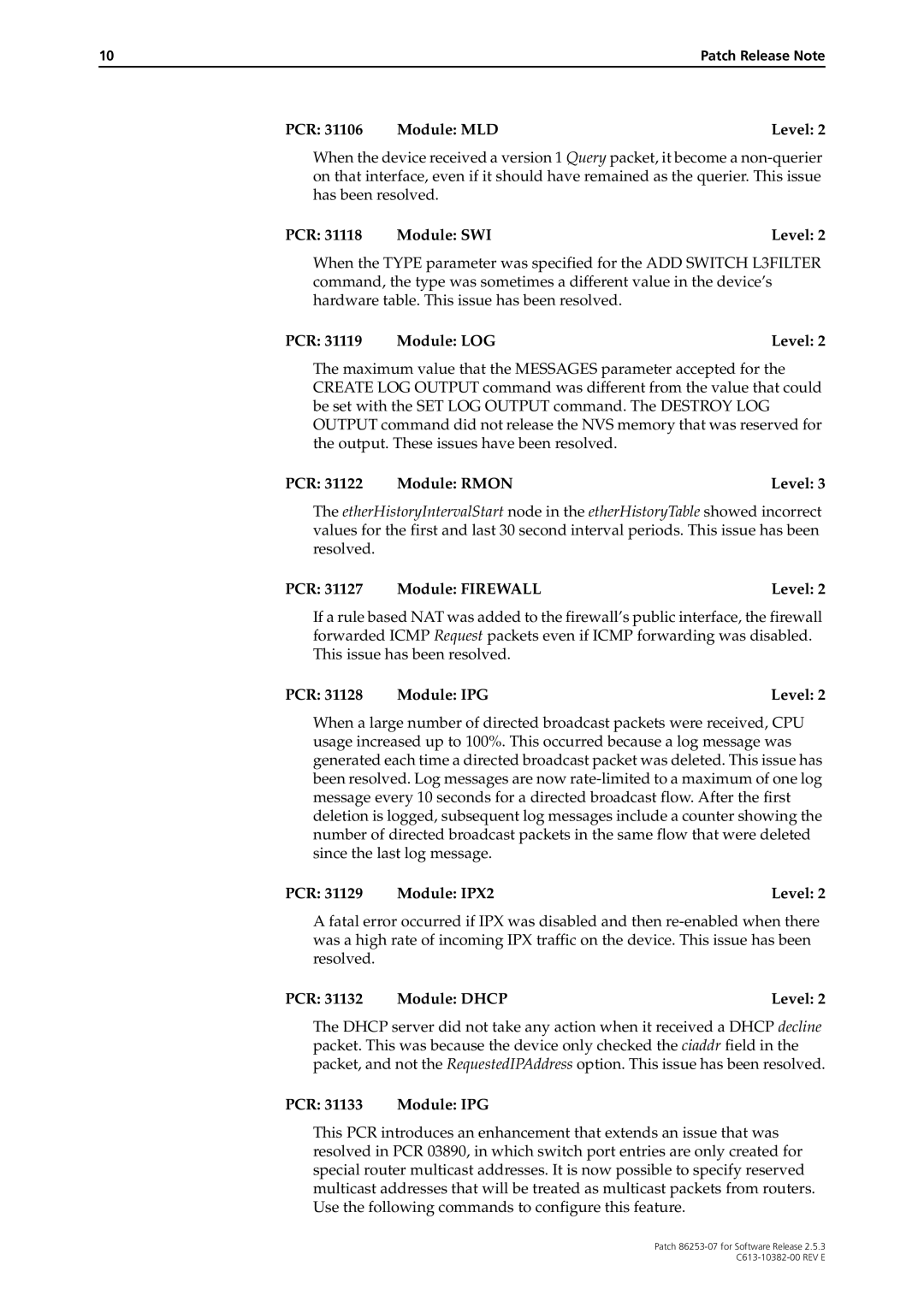86253-07 specifications
The Allied Telesis 86253-07 is a high-performance, versatile switch designed for enterprise networking environments. With its robust feature set and advanced technologies, the 86253-07 caters to a wide range of networking applications, making it an optimal choice for businesses seeking reliable and scalable connectivity solutions.At the core of the Allied Telesis 86253-07 is its capability to deliver high-speed data transfer, accommodating demanding applications such as VoIP, video conferencing, and large file transfers. The switch supports Gigabit Ethernet ports, providing speeds of up to 1 Gbps for seamless connectivity between devices. This performance is supplemented by its Layer 2 and Layer 3 switching capabilities, allowing for efficient data routing and management across complex networks.
One of the notable features of the 86253-07 is its support for Power over Ethernet (PoE). This technology simplifies the deployment of network devices like IP cameras and wireless access points, as it enables the switch to deliver power and data over a single Ethernet cable. This not only reduces installation costs but also enhances flexibility in network design.
The switch also offers advanced security features to protect sensitive data and network infrastructure. It incorporates various protocols such as IEEE 802.1X for port-based network access control, ensuring that only authorized devices can connect to the network. Additionally, features like VLANs (Virtual Local Area Networks) allow for effective segmentation of network traffic, further enhancing security and performance.
Allied Telesis ensures that the 86253-07 is easy to manage and monitor with its user-friendly interface. The switch supports management protocols like SNMP (Simple Network Management Protocol) and provides web-based management options, making it accessible for IT administrators to configure and troubleshoot the network efficiently.
Another significant characteristic is its reliability and durability. Built with high-quality components, the 86253-07 is designed to withstand varying environmental conditions, ensuring uninterrupted network operation in challenging settings.
In summary, the Allied Telesis 86253-07 is a powerful switch equipped with Gigabit Ethernet, PoE support, advanced security features, and straightforward management options. Its combination of performance, reliability, and flexibility makes it an excellent solution for enterprises looking to enhance their networking capabilities.
